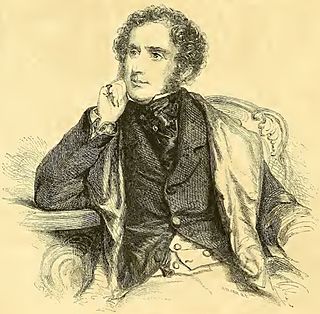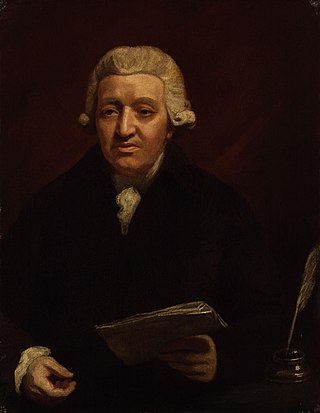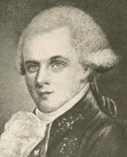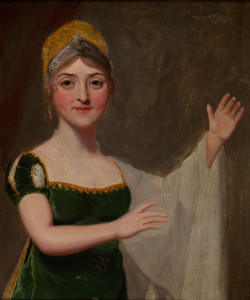Related Research Articles

James William Wallack, commonly referred to as J. W. Wallack, was an Anglo-American actor and manager, born in London, and brother of Henry John Wallack.

Theophilus Cibber was an English actor, playwright, author, and son of the actor-manager Colley Cibber.

Andrew Cherry was an Irish dramatist, songwriter, actor and theatre manager.

Charles Macklin, , was an Irish actor and dramatist who performed extensively at the Theatre Royal, Drury Lane. Macklin revolutionised theatre in the 18th century by introducing a "natural style" of acting. He is also famous for accidentally killing a man during a fight over a wig at the same theatre.

The Theatre Royal, Drury Lane, commonly known as Drury Lane, is a West End theatre and Grade I listed building in Covent Garden, London, England. The building faces Catherine Street and backs onto Drury Lane. The present building, opened in 1812, is the most recent of four theatres that stood at the location since 1663, making it the oldest theatre site in London still in use. According to the author Peter Thomson, for its first two centuries, Drury Lane could "reasonably have claimed to be London's leading theatre". For most of that time, it was one of a handful of patent theatres, granted monopoly rights to the production of "legitimate" drama in London.
The Old American Company was an American theatre company. It was the first fully professional theatre company to perform in North America. It also played a vital role in the theatre history of Jamaica. It was founded in 1752 and disbanded in 1805. It was known as the Hallam Company (1752–1758), the American Company (1758–1785) and the Old American Company (1785–1805). With a few temporary exceptions, the Company enjoyed a de facto monopoly of professional theatre in the United States until 1790.

Sir Augustus Henry Glossop Harris was a British actor, impresario, and dramatist, a dominant figure in the West End theatre of the 1880s and 1890s.

Charlotte Charke was an English actress, playwright, novelist, and autobiographer. She began acting at the age of seventeen in breeches roles, and took to wearing male clothing off stage as well, performing and being publicly known as "Charles Brown" from 1741. Her later career and her writings were conducted under her own name, "Mrs. Charlotte Charke", and identified her as the daughter of Colley Cibber. After being unsuccessful in a series of jobs associated with men at the time, such as valet, sausage maker, farmer, and tavern owner, she succeeded in her career as a writer and continued her work as a novelist and memoirist until her death in 1760.

Robert Wilks was a British actor and theatrical manager who was one of the leading managers of Theatre Royal, Drury Lane in its heyday of the 1710s. He was, with Colley Cibber and Thomas Doggett, one of the "triumvirate" of actor-managers that was denounced by Alexander Pope and caricatured by William Hogarth as leaders of the decline in theatrical standards and degradation of the stage's literary tradition.
Lewis Hallam was an English-born actor and theatre director in the colonial United States.

Lewis Hallam Jr. was an England-born American actor and theater manager, son of Lewis Hallam, one of the pioneers of Theater in the United States, and Sarah Hallam Douglass. He was the leading actor of the Old American Company, at the time the only theater in America, and the manager of the same Company in 1779-1796.

Thomas Lowe was an English tenor and actor. He appeared at the Theatre Royal, Drury Lane and at Covent Garden, and frequently performed in London's pleasure gardens. He was particularly associated with the works of Thomas Arne and George Frideric Handel.

Elizabeth Rebecca Edwin was an Anglo-Irish stage actress active in Ireland and England during the late eighteenth and early nineteenth centuries.

William Oxberry (1784–1824) was an English actor. He also wrote extensively on the theatre, and was a printer and publisher.

Isabella Mattocks was a British actress and singer.

Joseph Leathley Cowell, born Joseph Leathley Hawkins-Witshed, was an English actor, author, and painter.

Victoria Rosaline Sarah Vokes was a British music hall, pantomime and burlesque actress and dancer of the 19th-century and a member of the Vokes Family of entertainers. For more than ten years they were the central attraction at the annual pantomime at the Theatre Royal, Drury Lane from 1868 to 1879 when their popularity began to wane.

Sarah Hallam Douglass was an English-born American stage actress and theatre director. She was known as Mrs Lewis Hallam and Sarah Hallam.
Thomas Hallam was a British stage actor.

William John Hammond was a British actor-manager and singer of comic songs of the early 19th-century. He played Sam Weller in Samuel Weller, or, The Pickwickians in 1837.
References
- This article incorporates text from a publication now in the public domain : Wilson, J. G.; Fiske, J., eds. (1892). . Appletons' Cyclopædia of American Biography . New York: D. Appleton.